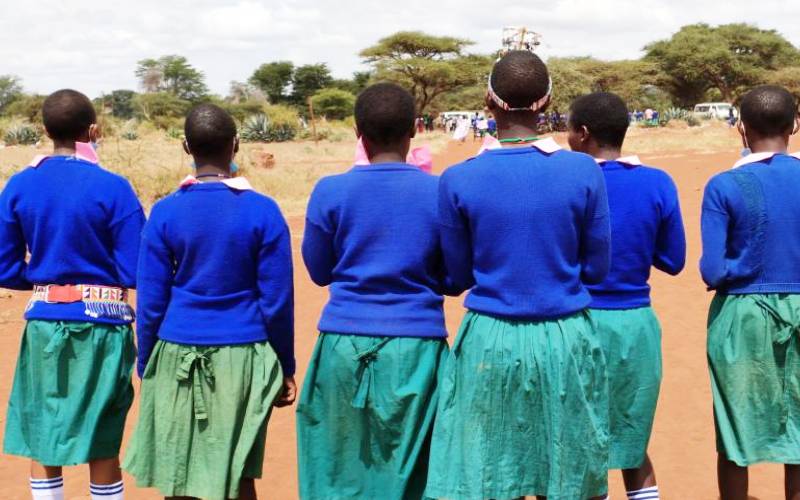×
The Standard e-Paper
Home To Bold Columnists

Some of the girls learning and living in Elang’ata Enkima primary school located in Loitoktok, Kajiado County. [Nanjinia Wamuswa, Standard]
A wire-netting fence held by metal bars and concrete pillars and a strong iron gate surround two dormitories inside Elang’ata Enkima primary school located Loitoktok, Kajiado County.